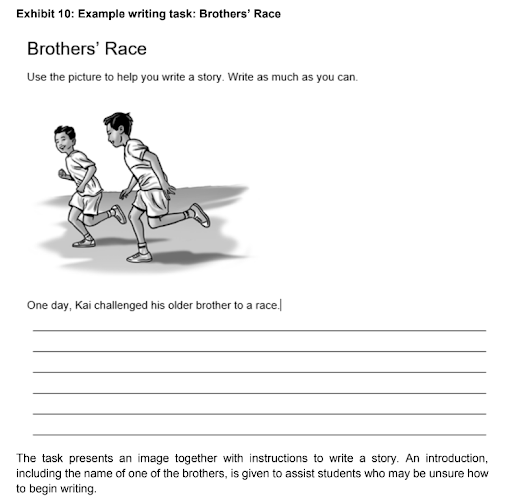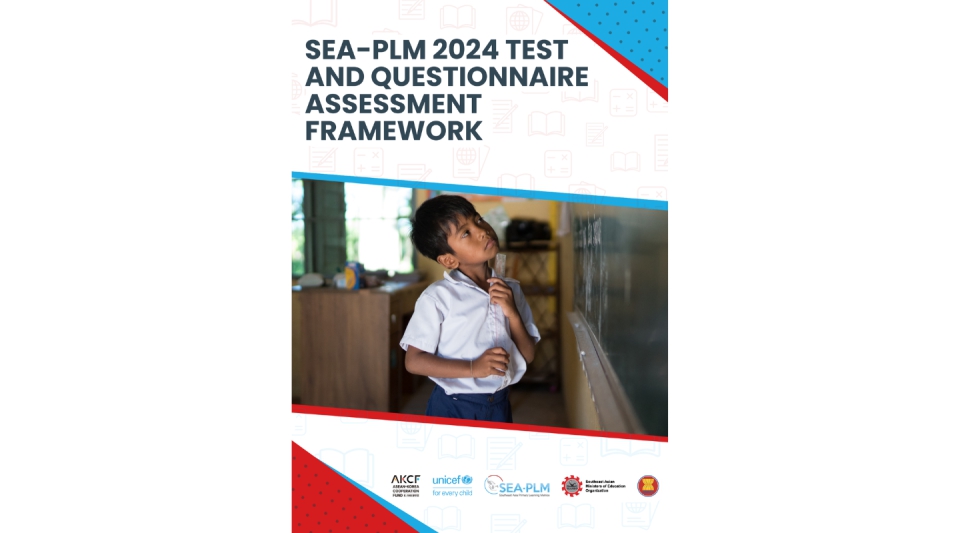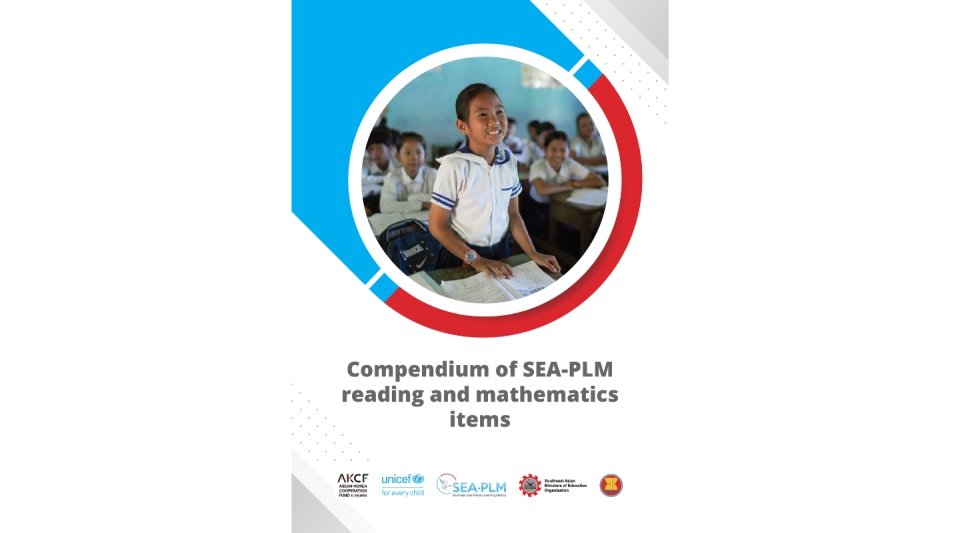
INSIGHTS
This is your main NEWS category. Note that Joomla has another NEWS category built in. This one is for the plug-in called K2.
SEA-PLM Quality Embodied through its 2024 Test and Questionnaire Assessment Framework
The Southeast Asia Primary Learning Metrics (SEA-PLM) programme strives to achieve the rigor and quality of international large-scale assessments (ILSA) while addressing the unique challenges and contexts of Southeast Asian countries. The 2024 Test and Questionnaire Framework exemplifies SEA-PLM’s commitment to scientific rigor and high-quality development of cognitive tests and questionnaires, serving as an external measurement of education systems in the region.
Considering the unique educational contexts of Southeast Asian countries, the framework emphasizes the relevance of the literacy-based approaches and contents, ensuring the assessment encompasses a broad range of proficiencies of what children can do and their potential for continuous learning. This makes SEA-PLM 2024 instruments responsive and suitable countries’ and local needs.. The assessment framework includes a detailed definition of literacy in reading, writing, and mathematics, and outlines the processes for incorporating emerging skills and 21st century constructs in the questionnaires administered across stakeholders.
The confirmation of the SEA-PLM survey initiative as a cyclic comparative study in Southeast Asia – SEA-PLM 2024 as the second round - offers new perspectives to refine and improve some
components of the original framework developed for the first round of SEA-PLM. The aim is to
maintain a strong and robust foundation, based on many trend items and similar test formats and data collection procedures, to allow comparisons of trends over time between Grade 5 cohorts across the future cycles of assessment.
This document presents the SEA-PLM 2024 test and questionnaire framework to take into account lessons learned, experiences and the latest methodology direction of the survey. Key contents are presented in 5 chapters, SEA-PLM surveys approach (Chapter 1), cognitive test – reading (Chapter 2), writing (Chapter 3) mathematics (Chapter 4), and contextual questionnaires (Chapter 5). The final version of the SEA-PLM 2024 contextual student, parent, teacher and school questionnaires master source version in English are accessible in Annex 1, 2, 3 and 4. The SEA-PLM 2024 assessment framework is designed to be flexible to accommodate future survey iterations.

To gain a deeper understanding of how the SEA-PLM survey has been implemented using this framework and designed tests and questionnaires, SEA-PLM is pleased to publish and invite the education expert to explore the assessment framework document. This comprehensive guide offers insight into the development process, the rationale behind the updates, and the specific methodologies employed. Check the document to see how SEA-PLM continues to advance educational assessment and contribute to the improvement of primary education across Southeast Asia.
You can access the document on the SEA-PLM 2024 test and Questionnaire Framework here https://www.seaplm.org/index.php/sea-plm-2024/frameworks-2024
|
|
|
|
|
|
|
|
–
For media inquiries and more information, please contact:
Rizky Ashar (This email address is being protected from spambots. You need JavaScript enabled to view it.), SEA-PLM Regional Secretariat
SEA-PLM Compendium of items: Advancing foundational skills in reading and mathematics
Creating a roadmap to accelerate foundational learning in Southeast Asia
Siem Reap, Cambodia | Anieluz Pastolero: Back-to-back with the 14th SEA-PLM Regional Steering Committee, the High-Level Regional Conference on Foundational Learning, collaboratively organised by the SEA-PLM Regional Secretariat, SEAMEO Secretariat, UNICEF EAPRO, and the ASEAN Secretariat, spotlighted the enduring crisis in foundational learning as well as the progress, gaps, and opportunities for accelerating foundational learning across the region. Drawing from the findings of SEA-PLM 2019 and other international comparative large-scale assessments, substantial gaps in literacy in reading, writing, and math among primary school students have persisted even before the pandemic, underscoring the urgent need for concerted efforts to support learners across the region.
Several themes and issues were unpacked by the Ministries of Education in the region and foundational learning experts throughout the discussions, ranging from empowering teachers, supporting learners, transforming curriculum, early childhood learning, and financing primary education. The platform provided a rich set of perspectives to key actors in the education arena on the bottlenecks and opportunities to improve the learning crisis, particularly on cultivating foundational learning of children in the region.

The conference concluded with the formulation of the regional priorities for action on foundational learning, aligning with the strategies identified during SEAMEO’s 6th Strategic Dialogue for Education Ministers in February 2023, as committed by the 11 SEAMEO member countries. The outcome document of the Conference will be released upon final consultation with countries. The SEA-PLM Regional Secretariat, with its technical collaborators, is also gearing up for the launch of the SEA-PLM regional reports focused on improving foundational learning across the region, with topics ranging from early childhood learning, equity factors, learning trajectories, and the exploration of global citizenship education.
The event was held on 23 February 2024 and attended by delegates from the ASEAN-Republic of Korea Cooperation Fund and the Ministries of Education of Brunei Darussalam, Cambodia, Lao PDR, Malaysia, Myanmar, Philippines, Thailand, Timor Leste, and Viet Nam. Representatives from the Global Coalition on Foundational Learning also took part in the panel discussions, including the Foreign Commonwealth and Development Office, USAID, UNESCO, UNICEF, and World Bank, together with the education and policy experts from the Korea Institute for Curriculum and Evaluation, Korean Educational Development Institute, Association of Southeast Asian Teacher Education Network, SEAMEO CECCEP, ACER, and British Council.
Check the output document of the conference in the link below
High-level Regional Conference on Foundational Learning Discussion Results






